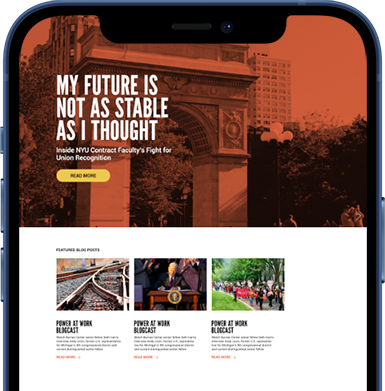After decades of poor working conditions and low pay, unpredictable mass layoffs are causing employees across the video game industry to turn to unions for security and stability.
“Downsizing” is nothing new to tech workers. Tech companies are notorious for blindsiding their workers with massive cuts to their staff. In 2023, an estimated 9,000 video game employees lost their jobs even as companies reveled in years of increased sales due to the pandemic.
Only four months into 2024, more than 8,000 layoffs have already been announced. The industry is virtually guaranteed to eclipse last year’s total number of layoffs. Sony has already revealed it is considering downsizing its Playstation studios and other smaller studios. Electronic Arts has also announced plans to spend over $125 million that includes shrinking its staff by 5%.
According to the 2024 State of the Game Industry survey, conducted by the Game Developers Conference, one-third of developers have been affected by layoffs, either by seeing them take place within their team or company or by being laid off themselves, and half are concerned there could be more.
Plainly, workers need protection from much more than just layoffs. Because video game developers and quality control employees work on strict deadlines to meet release dates, they are often subject to “crunch time”: the period leading up to a game’s release when workers are expected to work unreasonable hours, forgo breaks, and prioritize the game’s completion by any means necessary.
Many employees also describe a “boys-club” atmosphere to the industry, citing numerous examples of sexism and harassment in an industry dominated by men, which creates many more barriers to organizing. Employees have been highlighting these issues since 2020:
In the same State of the Game Industry survey, only 5% of developers reported being represented by a union. So, more workers need to turn to collective action and start the challenging conversations that spark union organizing.
Thankfully, others have already laid the foundation for organizing within the industry. Raven Software Quality Assurance workers at Activision Blizzard formed the first video game union in the United States, the Game Workers Alliance, in 2022 following years of increased worker activism due to the pressing demands of the coronavirus pandemic.
A letter published by the Game Workers Alliance announcing the union’s formation read: “Following the layoffs that began on December 3, 2021, it has become apparent that the current working conditions have become untenable.”
After receiving favorable rulings from the National Labor Relations Board regarding unfair labor practice charges alleging intimidation and coercion, the union has continued organizing and represents over 600 workers as a bargaining unit officially recognized by Microsoft, Activision Blizzard’s new owner. The union was the first group organized by the Communication Workers of America (CWA) under the labor neutrality agreement established between CWA and Microsoft. This agreement is a result of the Communications Workers of America’s Campaign to Organize Digital Employees (CODE-CWA), which has led the charge on most of the recent organizing in the industry.
Another group of employees organized by CODE-CWA, the Allied Employees Guild Improving Sega, ratified their first contract in late March. They were the first to approve a contract with a major video game development company.
Congratulations to CWA members at SEGA (@takesAEGIS) who just voted to ratify their first contract!
— CODE-CWA (@CODE_CWA) March 28, 2024
This is a watershed moment for workers in the video game industry.https://t.co/Rr0Naw0bcG
Hopefully, CODE-CWA’s organizing at other tech companies will soon inspire more organizing efforts across the industry. In January 2023, 300 quality-assurance workers at Microsoft video game subsidiary ZeniMax Studios voted to join the company’s first US labor union. This organizing marked a turning point for organizing at massive tech companies in an industry suffused with union-busting. These workers are proving that organizing their workplaces is not only possible, but necessary.
Increased worker power offers new solutions to many of the issues in the video game industry. It’s time for more workers to follow the path that employees at Sega, ZeniMax, and Activision Blizzard have paved and recognize the potential of their collective power to “level up” their workplaces.

